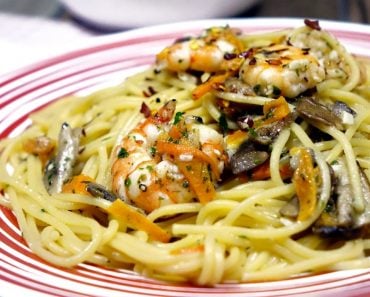Table of Contents (click to expand)
Salt enhances the flavor of food by suppressing the bitter taste and increasing the perception of the thickness of soup. It also reduces the activity of water in food, thereby concentrating the other flavors.
Imagine this… After a long, tiring day, you sit down to a delicious meal of the best foods that you have personally cooked for yourself. Taking great care, you’ve cooked it to perfection and your mouth is already salivating. As you finally tuck into your dish and take the first bite, you realize that you forgot to add salt!
Feels terrible, right?
Salt is an essential aspect of cooking across the world. It adds flavor to food and is also said to have a number of health benefits. However, unlike other flavor-boosting compounds, salt seems to be much more important. It is added in almost all dishes, including sweet preparations! So, what is it about salt that makes it such an important aspect of cooking?
Recommended Video for you:
Taste And Flavor
There are 5 basic tastes that exist – sweet, salty, bitter, sour and umami. Initially, it was believed that our tongue had specific areas for each of these tastes. The taste buds or taste receptors of those areas could detect only that particular taste. However, we now know that is not true. Taste buds can detect a number of tastes, and the different receptors are scattered all over the tongue. That being said, there may be certain areas that are more sensitive to certain tastes. For instance, the tip and sides of the tongue are more sensitive to salt than the rest of the tongue.
The taste of a food item is a combination of all the individual tastes we receive. Different receptors detect different tastes and send those signals to our brain. The latter then combines them and allows us to ‘taste’ the food. However, apart from these 5 basic tastes, there are other factors that affect the sense of taste. These include things like temperature, texture, smoothness, etc. Therefore, the combined effect of these aspects of a dish and the taste is better known as flavor.

How Do We Detect Salt?
While the exact mechanism is unknown, there is a hypothesis that has been tested widely and is generally accepted. To understand properly, we need to get a tad bit technical. The chemical formula of salt is NaCl, which gives rise to two ions – Na+ (cation) and Cl– (anion)
The cation is the one that imparts the salty taste, while the anion modulates it. Some of the other sodium compounds also have a bitter taste, and as the size of the anion increases, this bitterness increases. In fact, with some compounds, the bitterness increases to such an extent that it manages to predominate over the saltiness.
It is hypothesized that we have 2 types of receptors for salty taste. One such receptor is called Epithelial Sodium [Na] Channels (ENaC). When the ions are present in our saliva, these channels allow only the sodium or lithium ions to pass through. This increases their concentration inside the receptor, so we detect ‘saltiness’. These channels are specific to only sodium and lithium, and the latter is known to be toxic. This is why NaCl is the most commonly used form of salt.
Research has also shown that even when NaCl was replaced with, for instance, KCl (potassium chloride), the salty taste was detected, albeit to a lower extent. This suggests that there is another type of receptor for salt that allows the detection of other salt molecules, as ENaCs can only detect sodium and lithium.

Why Is Salt Important?
Now we come to the most important part… What is it about salt that makes it so special? We all know that sugar adds to the sweet taste, whereas salt adds a salty taste. However, apart from imparting a basic salty taste, it performs other functions too. Salt, in small concentrations, enhances the taste and flavor of sweetness. This supposedly occurs due to the suppression of the bitter taste. This is why a pinch of salt is always added to sweet things, such as cookies, cakes, etc.
In higher concentrations, salt can enhance the taste of umami, thus making it a necessary addition in savory foods. Apart from the suppression of tastes, salt also has other benefits. When tested, it increased the perception of the thickness of soup, and gave it a fuller, more rounded and balanced flavor. It is not clear how salt brings about such an effect. Salt also reduces the activity of water in food, thereby concentrating the other flavors!
So, there you have it. Salt is essential not only for the salty taste, but also for the plethora of other effects that it brings about. Since its mechanism for a number of these effects isn’t understood, it is hard to find other substitutes for salt. However, for those who require low-sodium diets, don’t lose hope, as there are definitely other ways to work around this problem! While not very useful for packaged foods, the addition of herbs and spices may provide at least some of the same advantages as salt in freshly cooked food, thus providing relief to your flavor-starved taste buds!












